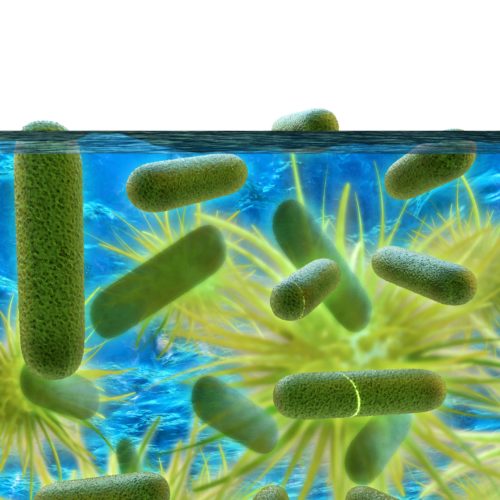The Departmental Laboratory, historical player in health monitoring networks
Veterinary laboratories of the State, Laboratories Departmental are particularly solicited during health crises (mad cow, bird flu, Listeria, Salmonella …) but also in the public health framework for legionella risk and official controls of waters requested by the ARS (Regional Agency for Health).
Their place in the health security networks was confirmed by the law of Development of the Rural Territories of February 23, 2005 and by the ordinance published in the official journal of July 23, 2011.
Screening for contagious diseases in humans and animals
Le Laboratoire Départemental de la Drôme replaces different missions of surveillance and detachment of common diseases to the human and animal (brucellosis, leukosis, IBR …).
In connection with the Sanitary Defense Group of Drôme and Ardèche, we participate in the good health of the farms of the territory. We assist in the diagnosis of bacterial, viral or parasitic animal diseases from samples of domestic or wild animal species.
Monitoring Plans and Control Plans (PS/PC)
The PS / PCs aim to monitor the contamination of animal and plant primary productions, foodstuffs of animal origin and food for animals.
The Laboratory is accredited by the Ministries of Health, Agriculture, and the Environment. As part of the official controls, we carry out annual analyzes at the request of the State services (DGAL and the DGCCRF) to ensure the safety of consumers.
The Drôme laboratory belongs to the network of official laboratories in charge of Surveillance Plans and Control Plans “Dioxins, Furans and PCBs” on fish, meats, animal fats, milks, breast milk, eggs … The laboratory is recognized for its experience and equipment. The analysis is carried out in high resolution mass spectrometry (HRMS) with extremely low detection levels of the order of picogram per gram.
Legionella Risk
Deadly in more than 10% of cases, legionellosis is a lung infection caused by water bacteria called legionella. The contamination is by inhalation of contaminated micro-droplets. It is a reportable disease according to article D. 3113-6 of the public health code.
In terms of public health, the Departmental Laboratory of Drôme is an important link in the study of Legionella risk. It is accredited by the Ministry of Health and accredited (accreditation COFRAC Tests No. 1-0852, scope available on www.cofrac.fr) for:
- Sanitary hot water sampling for legionella analysis
- Legionella analysis by the so-called culture method, in 10 days, according to standard NF T90-431
- Legionella analysis by PCR, in 48h, according to standard NF T90-471: DNA detection technique.
Legionella risk establishments are public buildings equipped with collective hot water installations: retirement homes, schools, sports facilities, companies equipped with collective showers, hotels, campsites and tourist residences. These establishments must be inspected by a COFRAC accredited organization at least once a year.
The Drôme Laboratoire assists you in your monitoring of your hot water distribution network and provides you with all the necessary advice for good prevention and good management of legionella risk.
For the Legionelle risk, La Drôme laboratory is recognized both in terms of analysis and sampling, but also thanks to optimized deadlines.
